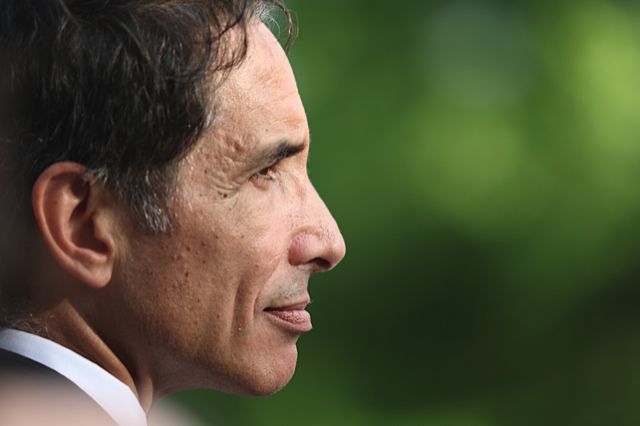By Philip Sean Curran, Staff Writer
Princeton Superintendent of Schools Stephen C. Cochrane and the Board of Education are trying to reach a contract extension for Cochrane to continue leading a public school district he is seeking to transform.
Cochrane, entering the final 12 months of his deal, has been running the system since he replaced Judith A. Wilson in January 2014. Contacted this week, he initially directed questions about his contract to School Board President Patrick Sullivan. Later, Cochrane issued a two-sentence-long-statement, short on details or specifics, about a meeting he and other school officials had together about his future.
“I have had an initial and positive meeting with the personnel committee of the board about an extension of my contract. The next step would be for the full board to meet about that possibility,” he wrote Thursday in a text message.
Cochrane did not respond to subsequent attempts for further comment or to answer questions.
For his part, Sullivan has offered public support for Cochrane’s job performance, and that he hoped that the superintendent would stay.
He said Friday that the board is looking to extend Cochrane for three or four years. He said he hopes to get that done before school resumes in September.
“We’re going to talk with him, hopefully next week, and see if we can work something out,” Sullivan said. “We’re eager to have him stay and hopefully he’s willing to stay.”
Cochrane is paid an annual salary of $167,500, not including bonus pay for meeting merit goals. He is wrapping up a four-and a-half year contract that started in January 2014. In New Jersey, school superintendents do not get tenure.
As he is pushing to make aggressive changes to the school district he had inherited from Wilson, Cochrane is not at all acting like a man who might not be around to see the fruits of his labor. He has talked of the need to hire more minorities as teachers and administrators, pushed for changes to curriculum to focus on race and social justice issues and sought to focus on the emotional well-being of students, even as he has advocated for redefining what success for children means in a community with high expectations.
Yet when Cochrane first started, he told an interviewer that did not see himself as having a mandate for change. But school officials who hired him were not looking for Cochrane to run the district on autopilot, either.
“I don’t want to speak for my colleagues on the search committee or on the board at that time,” said former board President Tim Quinn, “but I personally did not want someone who was going to maintain the status quo.”
Quinn, now a Princeton councilman, said officials were aware of challenges facing the school system, including the “climate and culture” at Princeton High School.
“I think very much we wanted the opposite of someone who was going to maintain the status quo,” Quinn said. “I think we saw in Steve someone who would challenge assumptions and make improvements.”
Sullivan, who served with Quinn, said “the board, at that time, had some, I think, views about where they wanted things to go from here.”
“And we’re seeing that come into action now,” Sullivan said. “So I’m not sure if we were explicit in saying that we wanted a change agent, but we certainly wanted to see some changes.”
In his time at Princeton, Cochrane has talked of having students lead “lives of joy and purpose,” introduced positive psychology and focused on student wellness. That has led him to impose homework free weekends at PHS, where changes to the starting time of the school day and to students’ schedules are coming in 2018.
In words to graduating PHS seniors last week, Cochrane offered a message that could equally apply to the school district.
“The key,” he said to a group of graduates in blue caps and gowns, “is to change your focus. The key is to look past problems and toward possibilities.”
He and his administration have sought to tackle problems they see in the community, including “racism” in Princeton public schools.
“Racial literacy is not about the eradication of racism,” he said at a recent school board meeting. “It is about developing the skills and the culture that help us to have honest, authentic, respectful conversations about race — conversations that preserve the dignity of all parties without backing away from real hurt and real injustice, conversations, most importantly, that lead to real changes.”
Those changes, he has said, would apply to curriculum, policy, instruction and “expectations and climate.” He has called it a district “mission” for students to graduate from Princeton “racially literate” to discuss race.
“I want our third-graders to not just be hearing about colonial times …,” he said at a recent public forum on racism in which he talked about those and other curriculum revisions that would be happening this summer in time for September.
He said the changes are intended so that “every student, white, black, brown, is going to have the opportunity to learn the language, learn the skills, to be able to talk about race.”
Beyond that, the district is preparing for a bond referendum and, with rising enrollment, considering whether to build a new school. The district has put in an offer to Rider University to acquire its Westminster Choir College campus, land that is contiguous with PHS and John Witherspoon Middle School.

